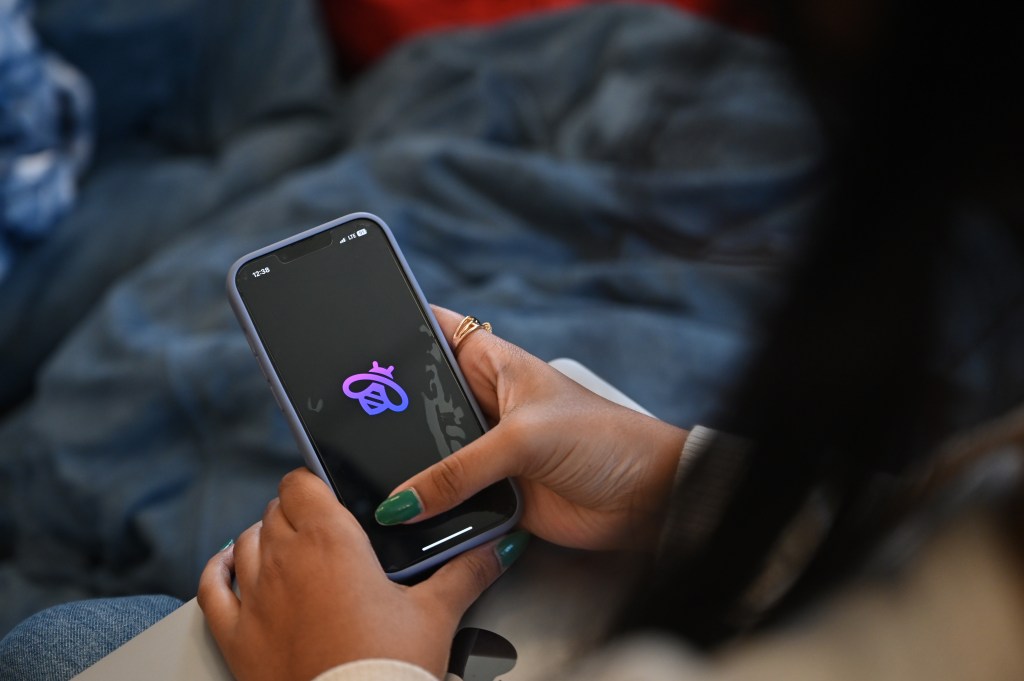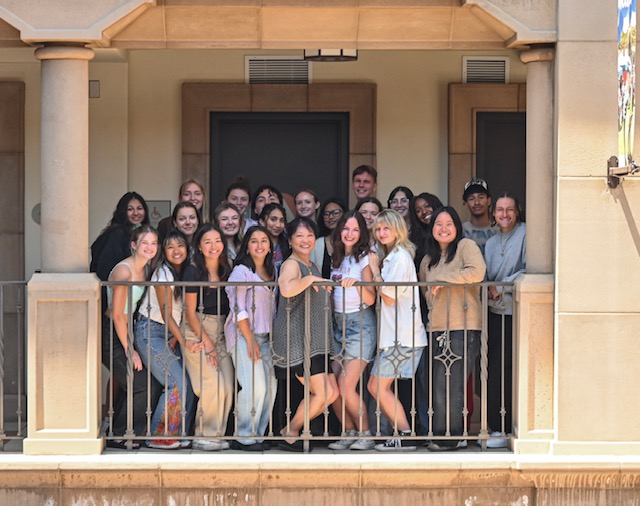LILI KIM / ASST. NEWS EDITOR
Over the past year, Fizz has sent waves of negativity throughout the USD community. Yet despite ASG efforts, the social media app is seemingly here to stay.
The use of social media platforms can inevitably entail the potential consequence of harmful language, bullying and the spread of misinformation. These negative effects of social media have led to discussions of a potential ban of the social platform Fizz on USD’s campus. Specifically, USD’s Associated Student Government (ASG), including newly-elected president Morgan Pheng, discussed the possibility of banning the app in her recent election campaign. Though after multiple meetings and brainstorming sessions, ASG was unable to ban the app and instead collaborated with community leaders such as the Vice President for Student Affiars and the Dean of Students, to send a campus-wide email outlining the negativity of the app and potential consequences of student code violators.
Fizz, founded by students at Stanford University in 2021, was designed to be an app for college students to post their thoughts, ask questions and interact with other students. The app is set up similar to Reddit or X (formerly known as Twitter), where other Fizz users can anonymously “re-fizz” or repost other people’s content, comment or complete polls. Fizz was first introduced to USD in January 2023 as a way to create space for students to talk about campus news, trends or events.
One of Fizz’s unique features is that it is completely anonymous, requiring only a USD-affiliated email account to log on. This masking of identity has led some users to post negative or harmful comments about certain groups or people at USD’s campus, which violates USD’s vision as an institution as stated in the vision statement on USD’s website.
“Strengthened by the Catholic tradition, we confront humanity’s challenges by fostering peace, working for justice and leading with love.” Some harmful posts include overtly racist, sexist and xenophobic comments.
One part of the campus community Fizz has negatively affected is Fraternity and Sorority Life (FSL), which 26% of USD students participate in. Some Fizz users have created polls comparing the attractiveness of members in various sororities or ranking which ones are better than others.
USD junior Katie Smith, the Panhellenic delegate for Kappa Delta (KD) and former recruitment counselor, experienced firsthand how Fizz affected sorority recruitment.
“After recruitment, there was a lot of backlash for sororities and [Fizz] was tainting girls’ minds and putting things in their head about what sororities they should preference. I kind of knew then that was the beginning of the end,” Smith said.
While many posts on Fizz are harmless or even positive, the amount of negativity coming from the app has led to conversations about a potential Fizz ban on campus. According to outgoing Associated Student Government (ASG) President Andres Fernandez Perez, members of the student body and USD community have approached ASG with concerns about the relevance of the app.
“People from the centers, commons, fraternity and sorority life (FSL) [and] student affairs… have brought up several times that it’s not regulated, not fair and not positive,” Perez said.
While ASG brainstormed ideas on how to ban or moderate the app, after speaking with the Information Technology department and Public Safety on campus, it is practically impossible to outright ban the app. This is due to freedom of speech and privacy laws. In response, Perez, alongside other ASG board members collaborated with Vice President for Student Affairs Charlotte Johnson, Vice President for Mission Integration Michael Lovette-Colyer, Dean of Students Nicole Whitner and Assistant Vice President for Public Safety James Miyashiro to release an official statement to the campus community.
The statement outlined the harmful effects of the app and potential consequences of creating posts that violate the Student Code of Conduct. In particular, the statement included new information of instances where Public Safety could identify the author of problematic posts, and punish the violators with consequences from a warning to “separation from the university or even criminal charges.” The email stated that there had been at least one incident where Public Safety had identified the author of a post.
While this email is unlikely to stop the hateful comments completely, it gives an opportunity for reflection and consideration of one’s language. USD senior Olivia Wiley explained that this could be a wake-up call for Fizz users.
“I think other students will be discouraged from posting negative things on Fizz now that we know there’s a possibility of being suspended,” Wiley said. “I don’t post on Fizz, but if I did, I would be worried about getting in trouble with the school or my parents.”
While it appears that a Fizz ban is not possible, the misuse of Fizz will likely continue to be a conversation within ASG, as the incoming president Morgan Pheng included the banning of the app in her election campaign. At the ASG presidential debate covered by The USD Vista, Pheng shared her ideas on the app.
“Implementing an anti-bullying campaign and having those talks with administrators… pushing to advocate for taking down Fizz, or doing something about it within the administration and providing resources for students that are being affected by Fizz and what is being said [on the platform].” For now, Perez calls students to think twice before posting something on social media.
“I would encourage students to think about what the impact is they’re leaving…put yourself in their shoes and think about what it would feel like to be the one called out,” Perez said.
For now, no definitive actions are in motion to ban the app, but students are called to use the app responsibly and respectfully.
The USD Vista has also used Fizz in the past to communicate and engage with the USD community.
Fizz says it grants users anonymity, but according to an email sent by USD, DPS can sometimes identify authors of posts. Emma-Kate Squires/The USD Vista





Leave a comment